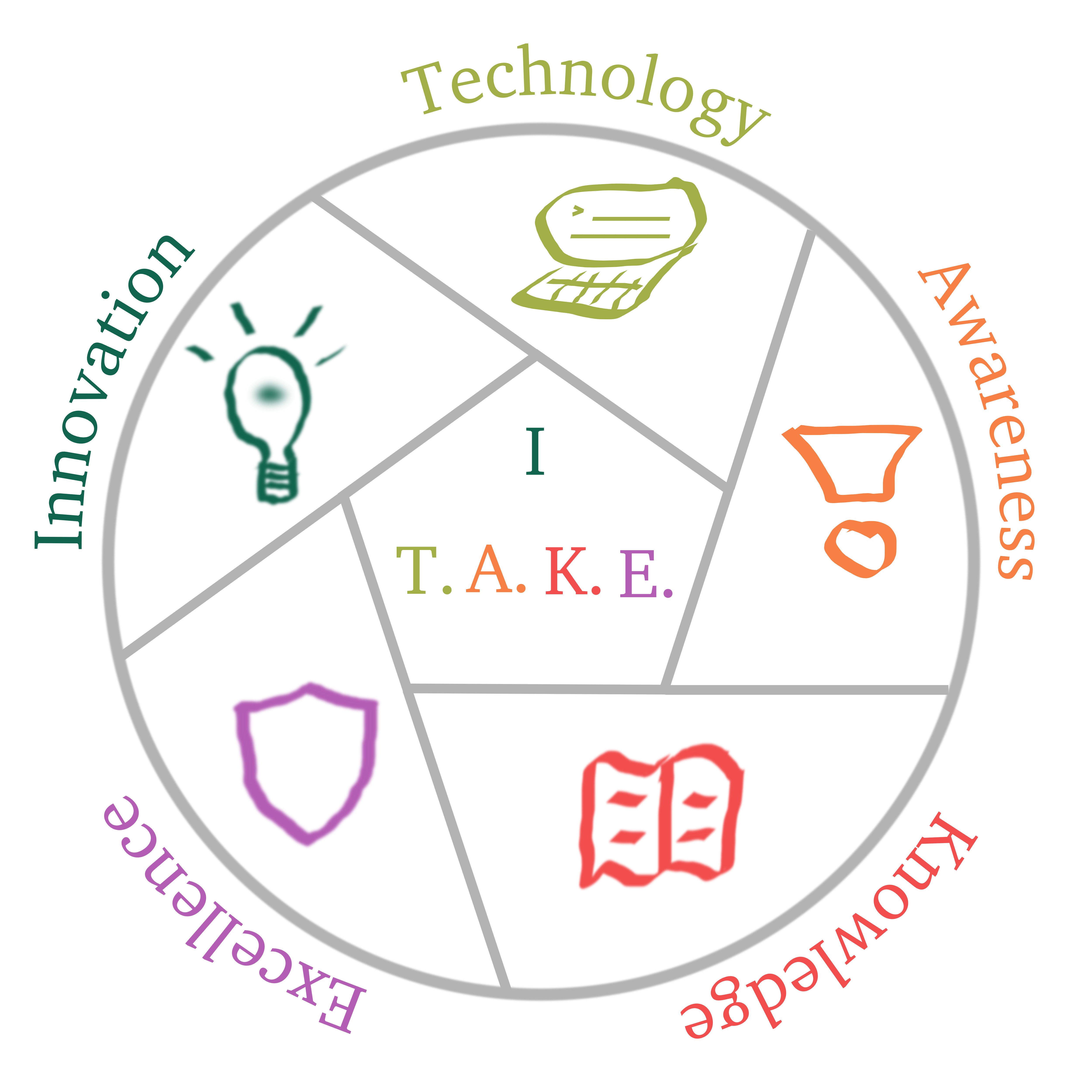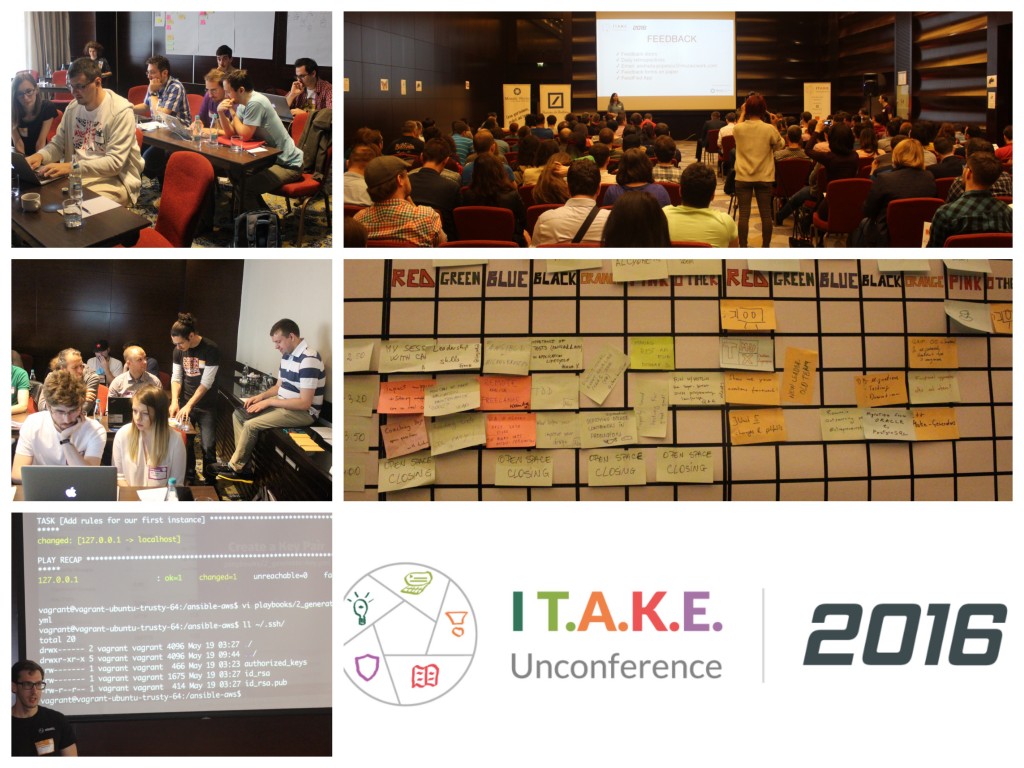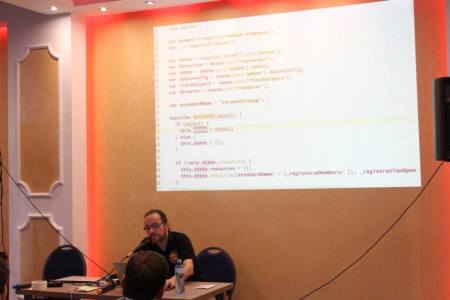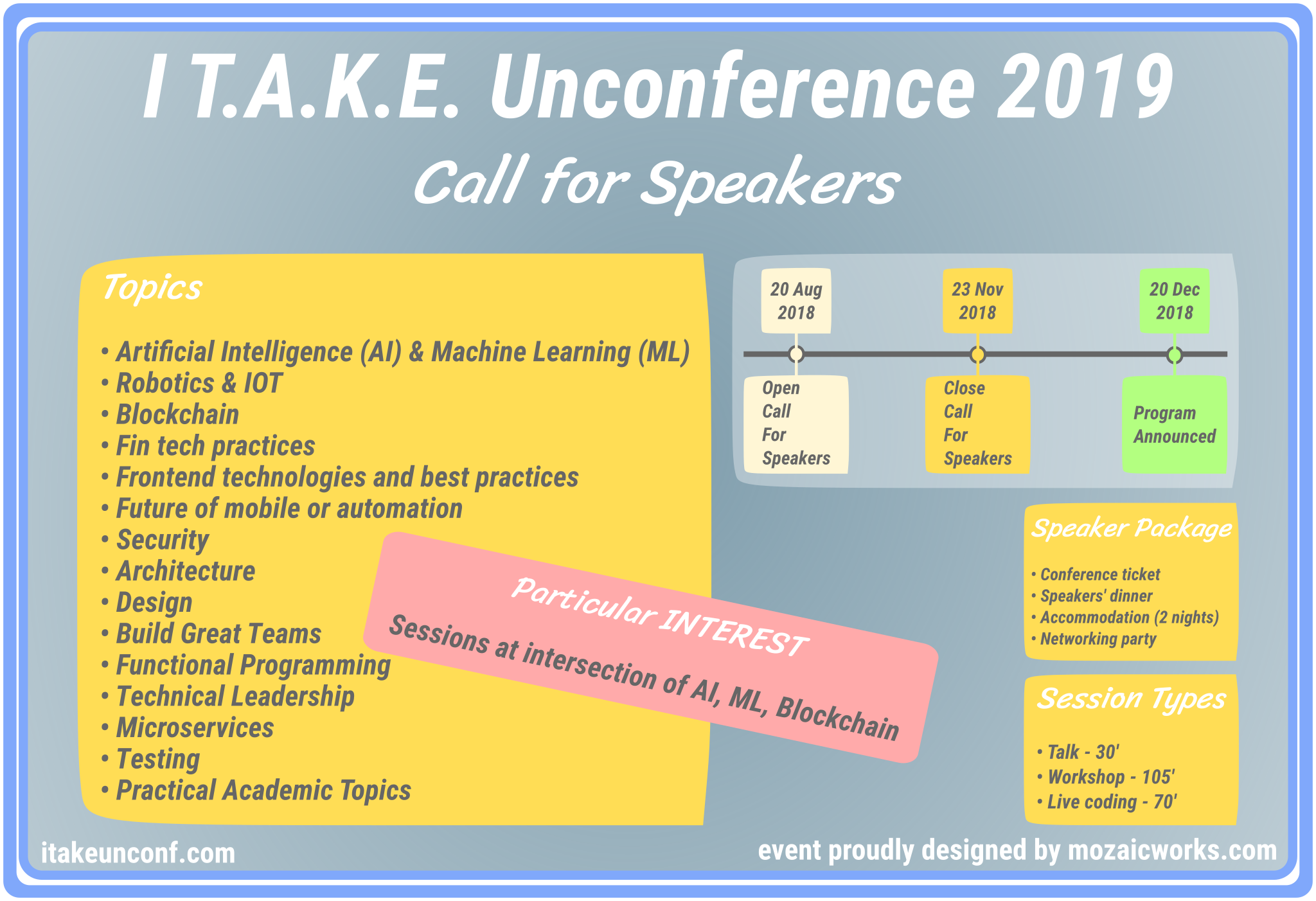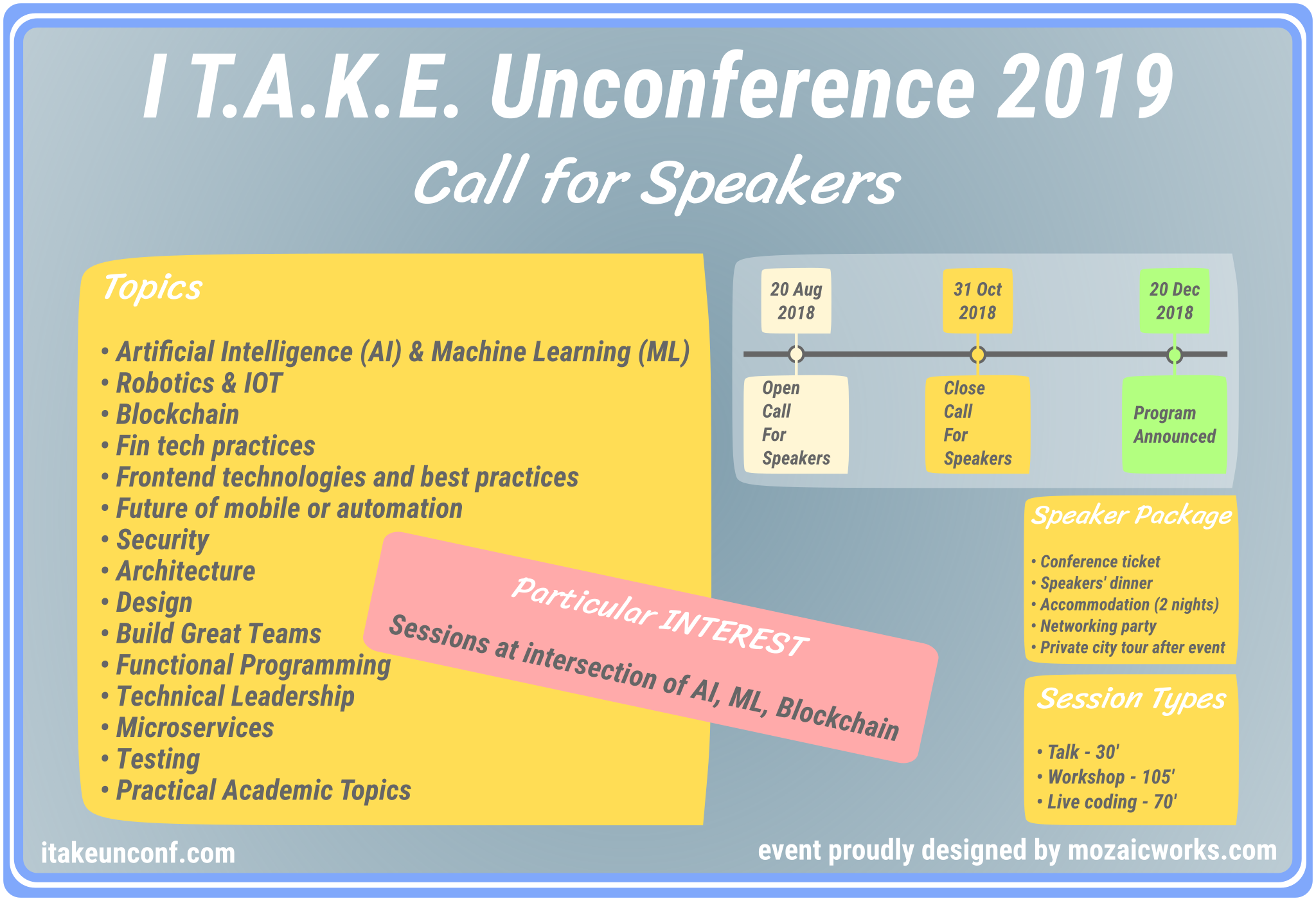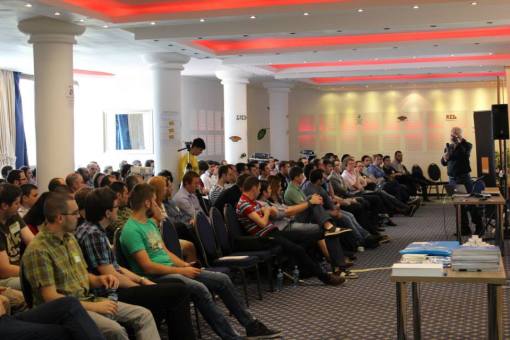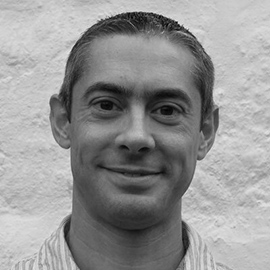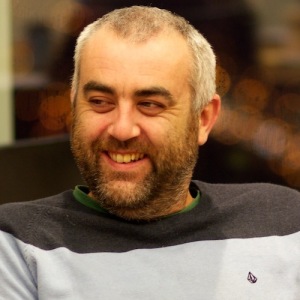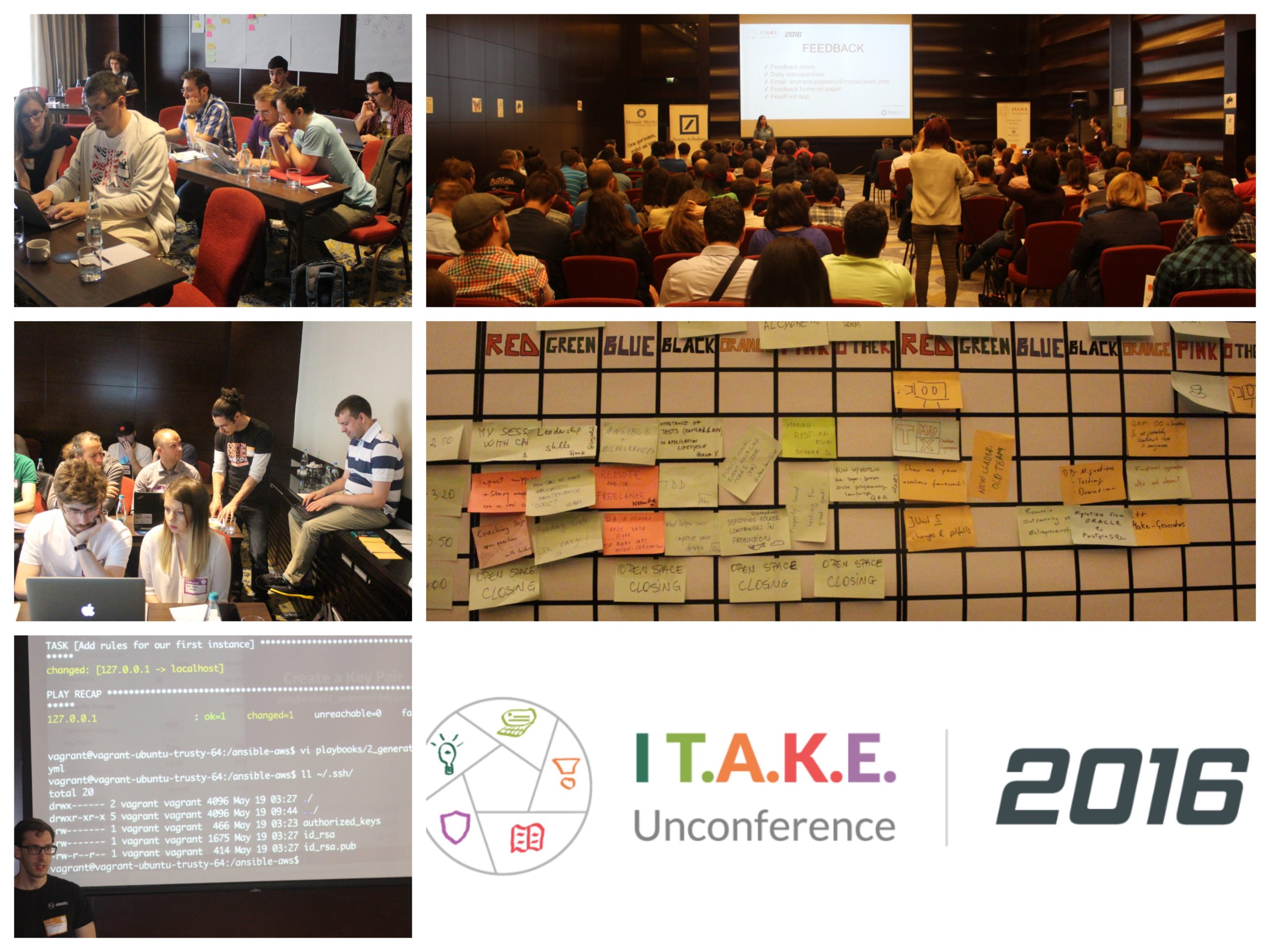
And…it’s a wrap: 2 days of intense & complex program, almost 300 participants, +30 sessions & +30 speakers. During the 2nd day of the event, 16 speakers from 11 countries shared their knowledge on Microservices, Autotesting & Design, Quality Practices, Architecture & Technical Leadership.
Watch the videos from the event here. Find below the presentations from day 2. The slides from day 1 are here.
Continous Deployment
Andrey Adamovich – Patterns for infrastructure as a code
Tugberk Ugurlu – Zero Downtime Deployment Golden Rules & Docker Changes the Way You Develop and Release Your Scalable Solutions
Thierry de Pauw – Continuous Delivery is more than just Tooling_Its a Culture
Thomas Sundberg – Definition of Done – Working software in production
Autotesting & Design
Thomas Sundberg – How deep are your tests
Franziska Sauerwein – Introduction to Outside in Test Driven Development (London School)
Alexandra Marin – Error-proof your mobile app
Ricardo Mendez – Flexibility Through Immutability
Quality Practices
Houssam Fakih – Never Develop Alone – always with a partner
Andrey Adamovich – Visualising Codebases
Architecture
Milen Dyankov – Microservices and Modularity
Clement Bouillier, Jean Hellou, Florent Pellet & Emilien Pecoul – Workshop around CQRS & Event sourcing
Technical Leadership
Hugo Messer – How to successfully manage remote teams
Flavius Stef – Is management dead
A few thoughts from the participants
- Very glad I attended, well worth the trip from UK
- It was a very well organised event. I really enjoyed it, the speakers have been inspiring and well prepared 🙂
- It was a pleasant learning environment – I hope you will continue to bring high-quality speakers in the event
